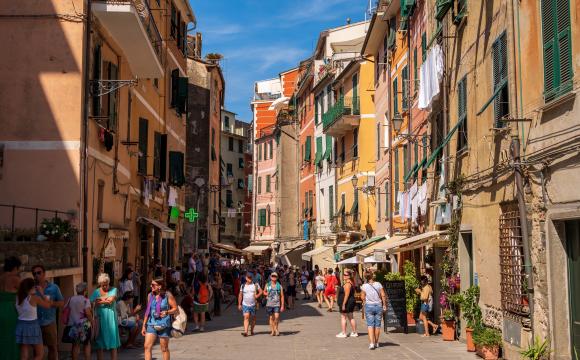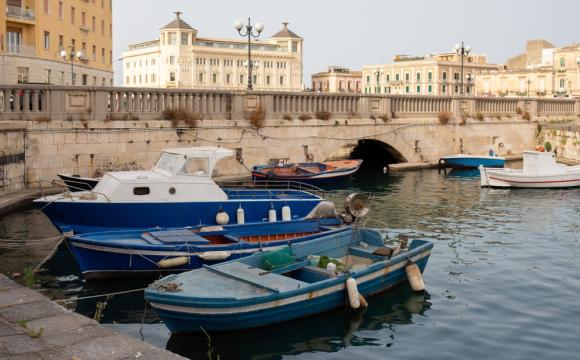Incoming Premier Silvio Berlusconi warned on Wednesday that unpopular measures would be necessary to turn Italy's ailing economy around and modernise the country.
Speaking at a joint press conference with other leaders in his centre-right alliance, Berlusconi said: ''Difficult moments are ahead... The reforms that are necessary will also have unpopular contents''.
The unusually sombre tones used by the 71-year-old media tycoon, who stormed back to power for a third time in Italy's Sunday-Monday general election, reflected the serious problems facing the country.
Italy is teetering on the brink of recession, with GDP growth put at only 0.3% this year by the International Monetary Fund.
Strapped by the third-biggest debt mountain in the world, the country is lagging behind its euro-zone partners.
Consumer spending has fallen as Italians struggle with some of the lowest wages in the euro zone and a hike in inflation which has included food prices.
The near-bankruptcy of Italian flag carrier Alitalia, an ongoing trash crisis in Naples and a scare over dioxin-tainted mozzarella have also knocked morale.
Italians are hoping that Berlusconi will use the muscle he has gained from an unexpectedly big election win to pass much-needed reforms and set the country back on its feet.
While outgoing centre-left premier Romano Prodi managed to straighten Italy's public accounts, winning plaudits from the European Union in the process, he lacked the necessary parliamentary majority to push through hard-hitting reforms.
Instead, Berlusconi enjoys a strong majority in both the House and Senate.
But critics point out that Berlusconi failed to deliver on his promises during his 2001-2006 government when he also enjoyed a solid majority.
His economy minister will once again be Giulio Tremonti. During Tremonti's previous term in office, Italy's public accounts declined sharply, with the budget deficit breaching the European Union's 3% ceiling from 2003 on to hit 4.4% in 2006.
Prodi brought the deficit back down (it dropped to 1.9% in 2007) but made himself unpopular with voters in the process.
EU Economic and Monetary Affairs Commissioner Joaquin Almunia urged Italy on Tuesday to follow Prodi's ''extremely successful'' debt-cutting efforts.
Berlusconi has promised spending cuts but he has also vowed to lower income taxes, raise minimum pensions and abolish council taxes on first homes. He also made a last-minute pledge to abolish automobile and scooter taxes.
SEEKS TO EASE LEAGUE CONCERNS.
The premier-to-be also sought on Wednesday to ease potential concern over the newfound power of a key ally, the Northern League.
The League is a populist, devolutionist party which is frequently criticised as anti-immigrant, anti-European and protectionist.
The party's firebrand leader Umberto Bossi caused a furore as reform and devolution minister in 2003 by saying that ''cannons'' were necessary to stop immigrant ships reaching Italian shores.
Another League heavyweight, Roberto Calderoli, was forced to quit as reform minister in 2003 after he sported a T-shirt emblazoned with the cartoons of the Prophet Mohammad which at the time were causing a wave of international Muslim protests.
Calderoli's act was followed by violent demonstrations in Libya in which the Italian consulate in Benghazi was attacked. Some 15 people were killed after local police opened fire on a crowd trying to storm the consulate.
Berlusconi vouched for the League's moderateness on Wednesday, stressing that there were no platform differences with the pro-north party.
''Our programme has been signed by Umberto Bossi and the League and we see identically on all the measures we intend to take,'' he said.
Berlusconi expressed backing for the League's call for 'fiscal federalism', a system whereby regions collect and spend their own tax revenue rather than sending it to central government.
Such a reform would benefit the highly productive north at the expense of the underdeveloped south with its high jobless rate.
But Berlusconi insisted that nobody would lose out and that ''no Italian region will be penalised''.













